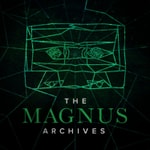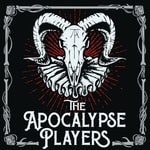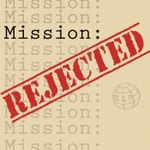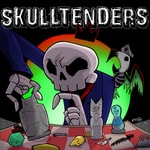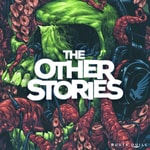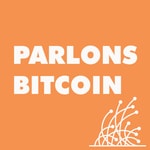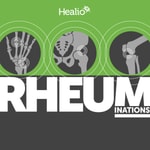Ask Dr. Universe – Détails, épisodes et analyse
Détails du podcast
Informations techniques et générales issues du flux RSS du podcast.
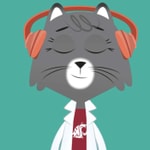
Ask Dr. Universe
Washington State University
Fréquence : 1 épisode/39j. Total Éps: 42

Join Dr. Universe and her friends at Washington State University as they investigate science questions from kids around the world. Know a kid with a curious science question? Help them submit it at askDrUniverse.wsu.edu for a chance to be featured on a future episode.
Classements récents
Dernières positions dans les classements Apple Podcasts et Spotify.
Apple Podcasts
🇬🇧 Grande Bretagne - educationForKids
15/02/2025#97🇬🇧 Grande Bretagne - educationForKids
14/02/2025#89🇬🇧 Grande Bretagne - educationForKids
13/02/2025#76🇬🇧 Grande Bretagne - educationForKids
12/02/2025#66🇬🇧 Grande Bretagne - educationForKids
11/02/2025#48🇬🇧 Grande Bretagne - educationForKids
29/10/2024#96🇬🇧 Grande Bretagne - educationForKids
28/10/2024#100🇬🇧 Grande Bretagne - educationForKids
27/10/2024#87🇬🇧 Grande Bretagne - educationForKids
26/10/2024#80🇬🇧 Grande Bretagne - educationForKids
25/10/2024#66
Spotify
Aucun classement récent disponible
Liens partagés entre épisodes et podcasts
Liens présents dans les descriptions d'épisodes et autres podcasts les utilisant également.
See all- https://www.zapsplat.com/
3108 partages
- https://www.inaturalist.org/
136 partages
- https://askdruniverse.wsu.edu/
48 partages
- https://www.instagram.com/sunrisemvmt
3 partages
Qualité et score du flux RSS
Évaluation technique de la qualité et de la structure du flux RSS.
See allScore global : 48%
Historique des publications
Répartition mensuelle des publications d'épisodes au fil des années.
Student-Led Podcasts | Exploring Plate Tectonics with PPCS
Saison 4 · Épisode 8
jeudi 10 octobre 2024 • Durée 13:25
Welcome back, young scientists. I’m Dr. Universe. If you’re anything like me, you’ve got lots of big questions about our world.
Today, the 4th graders at Palouse Prairie Charter School take Dr. Universe and her cougar cub friend Cosmo on an earth science adventure.
- Join our intrepid science team as they dig for fossils
- Hear about the supercontinent Pangea
- Learn about volcanoes and earthquakes
All sound effects courtesy of Freesound.
- Radio static: eddy15
- Steps on the sand field: rodrigovaz
- Moving a boulder: BW_Clowes
- Digging with pick axe: cameronmusic
- TsunamiBeach: acclivity
- Landslide: bikesandbassboi
- Volcanoexplosion: craigsmith
- Flagstones scraping: Metzik
Want to make a podcast episode with your class or group? Ping me at dr.universe@wsu.edu
As always, submit burning questions at askdruniverse.wsu.edu. Who knows where your questions will take us next.
How Do You Science | Meet an Astronomer
mardi 3 septembre 2024 • Durée 25:19
Welcome back, young scientists. I’m Dr. Universe. If you’re anything like me, you’ve got lots of big questions about our world. Today I'm talking to WSU astronomer Michael Allen.
- Learn what an astronomer does and what their day looks like
- Hear how people who do astronomy as a hobby contribute to the field
- Find out what Dr. Allen thinks about aliens
Resources You Can Use
- Check out Zooniverse to find a research project you can help with
- Find a robotic telescope to use from MicroObservatory or SkyNet
- Learn about the Jewett Observatory at WSU
As always, submit burning questions at askdruniverse.wsu.edu. Who knows where your questions will take us next.
Making a Difference | Meet a Youth Climate Organizer
Saison 3 · Épisode 11
mercredi 27 septembre 2023 • Durée 13:19
Hey, friends. I’m Dr. Universe. If you’re anything like me, you’ve got lots of big questions about our world.
In this episode, we meet Adah Crandall. She’s an organizer with the Sunrise Movement. That's a youth-led organization working on solutions for climate change. She started organizing as a middle schooler when she took on the Oregon Department of Transportation.
If you want to learn more, check out Sunrise on Instagram or the Green New Deal for Public Schools.
As always, submit burning questions at askdruniverse.wsu.edu. Who knows where your questions will take us next.
Making a Difference | Western Monarch Mystery Challenge
Saison 3 · Épisode 10
vendredi 1 septembre 2023 • Durée 17:54
Welcome back, friends. I’m Dr. Universe. If you’re anything like me, you’ve got lots of big questions about our world.
In this episode, we meet Emily Erickson. She’s part of the Western Monarch Mystery Challenge team. That’s a community science project that asks people to look for monarch butterflies in early spring and send in pictures to help scientists learn more about these important pollinators.
If you’re interested in helping monarch butterflies near you, check out these nectar plant guides from the Xerces Society.
As always, submit burning questions at askdruniverse.wsu.edu. Who knows where your questions will take us next.
How Do You Science | Meet a Science Writer
Saison 3 · Épisode 9
jeudi 20 juillet 2023 • Durée 12:44
Welcome back, young scientists. I’m Dr. Universe. If you’re anything like me, you’ve got lots of big questions about our world.
It's not enough to just do science—you've got to get the science out so people can read all about it. That's where science writers come in.
In this episode, we meet Sara Zaske, a science writer at Washington State University. She also edits the Ask Dr. Universe column!
As always, submit burning questions at askdruniverse.wsu.edu. Who knows where your questions will take us next.
How Do You Science | Meet a Biologist—Snakes & Bears
Saison 3 · Épisode 8
mardi 27 juin 2023 • Durée 18:41
Welcome back, young scientists. I’m Dr. Universe. If you’re anything like me, you’ve got lots of big questions about our world.
What's a postdoctoral fellow? How do rattlesnakes rattle? What's it like searching for snakes in the field or taking blood samples from a grizzly bear?
In this episode, we meet Blair Perry, a postdoctoral fellow at Washington State University. He uses the same methods to study the genes of snakes and bears!
As always, submit burning questions at askdruniverse.wsu.edu. Who knows where your questions will take us next.
Student-Led Podcasts | Explore the Solar System with PPCS
Saison 3 · Épisode 7
lundi 22 mai 2023 • Durée 20:08
Welcome back, young scientists. I’m Dr. Universe. If you’re anything like me, you’ve got lots of big questions about our world.
Do you love our solar system? Today, 4th graders from Palouse Prairie Charter School take me on a space tour in their Boomcrusher space shuttle. Come along!
Ask Dr. Universe is a service of Washington State University geared toward an 8- to 13-year-old audience. If your class or group is interested in working on a podcast episode with Dr. Universe, reach out. It takes about 6 months for young scientists to research and write a script and then work through editing, factchecking, and recording.
Sound effects courtesy Zapsplat.com. Thank you to Dr. Michael Allen (WSU Physics & Astronomy) for factchecking and to Northwest Public Broadcasting for recording.
As always, submit burning questions at askdruniverse.wsu.edu. Who knows where your questions will take us next.
How Do You Science | Meet a Fish Veterinarian
Saison 3 · Épisode 6
jeudi 27 avril 2023 • Durée 13:27
Welcome back, young scientists. I’m Dr. Universe. If you’re anything like me, you’ve got lots of big questions about our world.
How do you become a scientist? What does a scientist's day look like? Is being a scientist fun?
In this episode, we meet Nora Hickey, a fish veterinarian at Washington State University. We learn about fish medicine and why it’s important to follow your interests as you grow up.
As always, submit burning questions at askdruniverse.wsu.edu. Who knows where your questions will take us next.
Ask Dr. Universe is a service of Washington State University geared toward an 8- to 13-year-old audience. Check out WSU Veterinary Medicine’s Outreach Events—like the Teddy Bear Clinic—to find university experiences like Dr. Hickey had when she was a kid.
As always, submit burning questions at askdruniverse.wsu.edu. Who knows where your questions will take us next.
Explore Early Earth | Part 2: Meet a Geologist
Saison 3 · Épisode 5
mercredi 12 avril 2023 • Durée 12:30
Welcome back, young scientists. I’m Dr. Universe. If you’re anything like me, you’ve got lots of big questions about our world.
What was early Earth like? How did life start on Earth? And what’s up with plate tectonics?
In part two of this two-part episode, we meet geologist Johannes Haemmerli of Washington State University. We learn about early Earth, some brand-new research on plate tectonics and the idea that this process helped make Earth habitable.
As always, submit burning questions at askdruniverse.wsu.edu. Who knows where your questions will take us next.
Ask Dr. Universe is a service of Washington State University geared toward an 8- to 13-year-old audience. Listeners working on the Middle School History of Earth Next Generation Science Standards may particularly enjoy this episode:
| MS-ESS1-4. | Construct a scientific explanation based on evidence from rock strata for how the geologic time scale is used to organize Earth's 4.6-billion-year-old history.
| MS-ESS2-2. | Construct an explanation based on evidence for how geoscience processes have changed Earth's surface at varying time and spatial scales.
| MS-ESS2-3. | Analyze and interpret data on the distribution of fossils and rocks, continental shapes, and seafloor structures to provide evidence of the past plate motions.
As always, submit burning questions at askdruniverse.wsu.edu. Who knows where your questions will take us next.
Explore Early Earth | Part 1: Meet a NASA Scientist
Saison 3 · Épisode 4
mercredi 5 avril 2023 • Durée 11:03
What was early Earth like? How did life start on Earth? And what’s up with plate tectonics?
In part one of this two-part episode, we meet NASA scientist and Blue Marble Space Institute of Science founder Dr. Sanjoy Som. We learn about early Earth, stromatolites and how we can care for the planet that gave us life.
As always, submit burning questions at askdruniverse.wsu.edu.
Ask Dr. Universe is a service of Washington State University curated for an 8- to 13-year-old audience. Listeners working on the Middle School History of Earth Next Generation Science Standards may particularly enjoy this episode:
| MS-ESS1-4. | Construct a scientific explanation based on evidence from rock strata for how the geologic time scale is used to organize Earth's 4.6-billion-year-old history.
| MS-ESS2-2. | Construct an explanation based on evidence for how geoscience processes have changed Earth's surface at varying time and spatial scales.
| MS-ESS2-3. | Analyze and interpret data on the distribution of fossils and rocks, continental shapes, and seafloor structures to provide evidence of the past plate motions.
As always, submit burning questions at askdruniverse.wsu.edu. Who knows where your questions will take us next.
